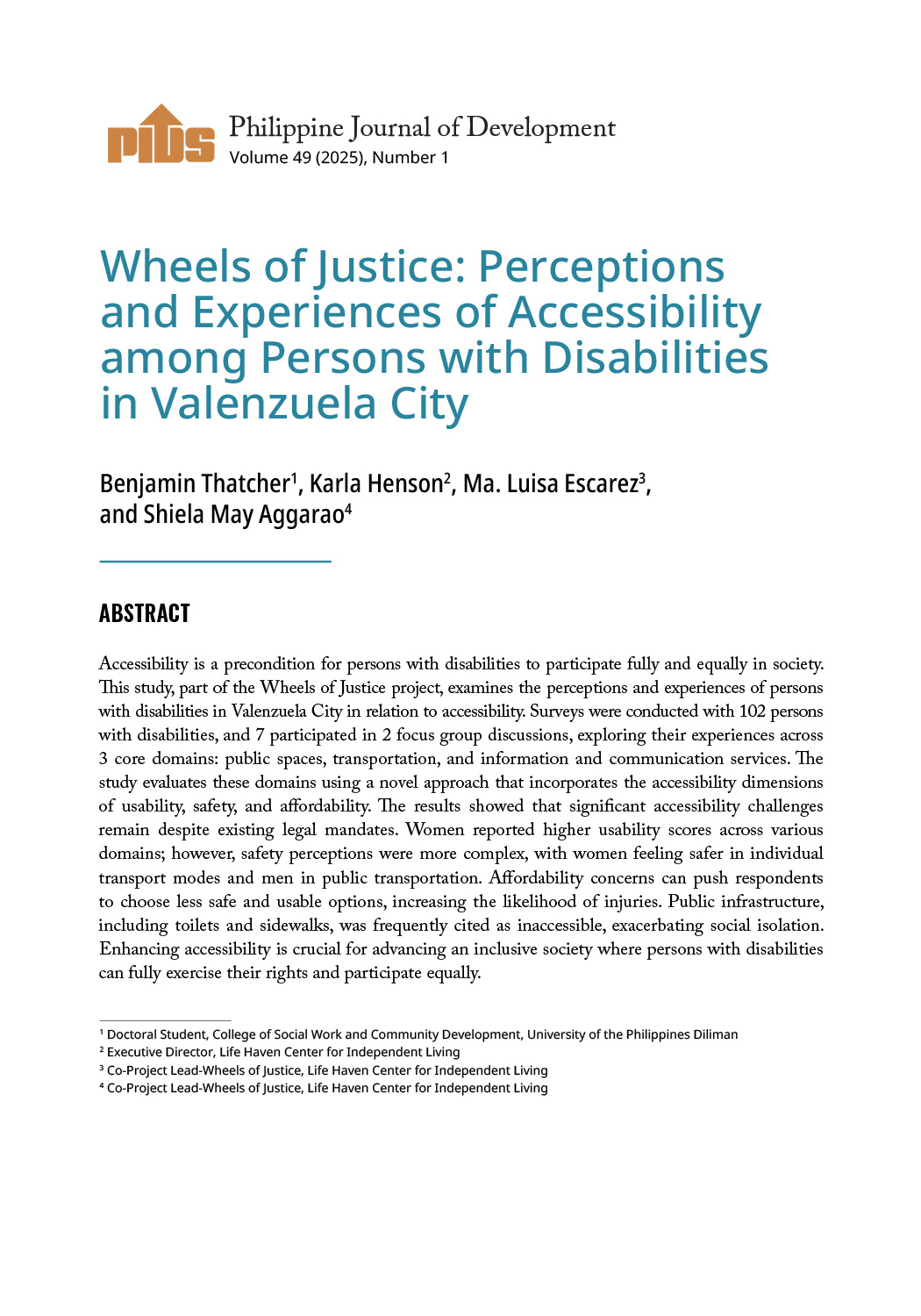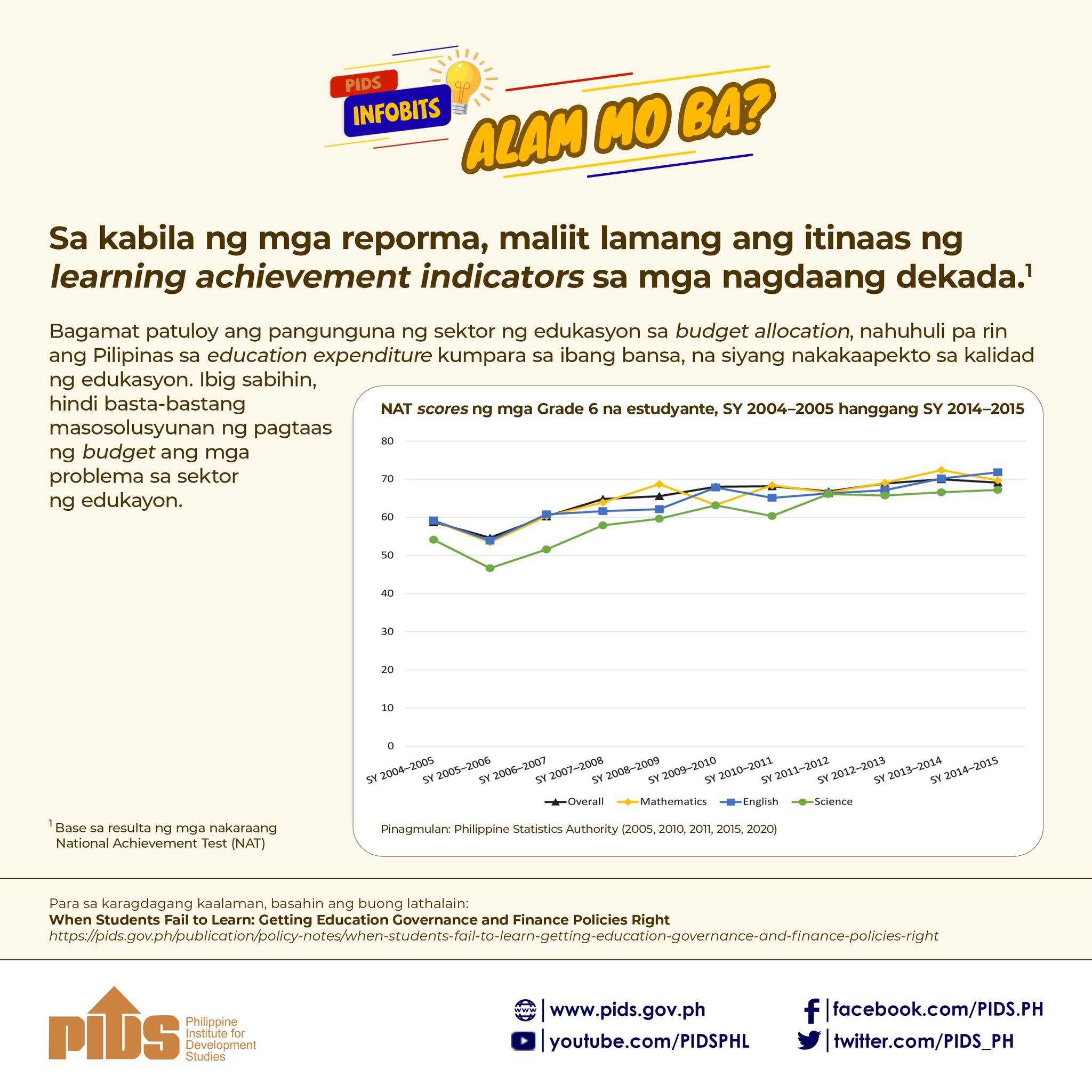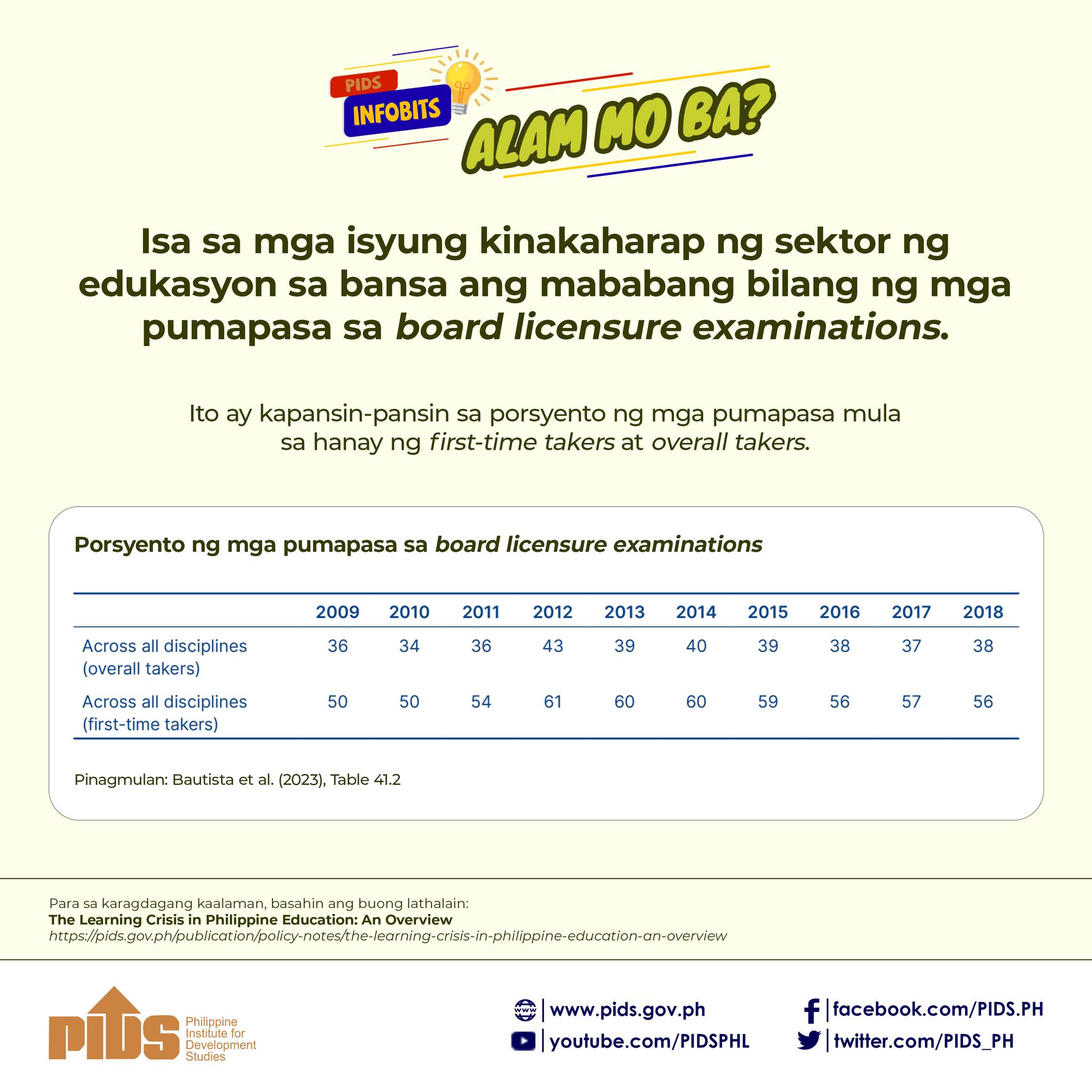Despite the significant gains in primary education participation rates, learning gaps remain high among primary and secondary level students.
Increased government spending in education, as well as the implementation of the K to 12 program are important education sector reforms that set the stage for improved access and better education outcomes for the Filipino youth.
However, while these reforms are significant, much is still needed to be done in improving learning outcomes for primary and secondary learners in the Philippines.
On May 24, 2016, the Department of Education (DepEd), Philippine Institute for Development Studies (PIDS) and Innovations for Poverty Action Philippines hosted a policy forum on "Evidence in the Education Sector” at the PIDS Conference Room in Centris, Quezon City, to disseminate among key decision-makers how impact evaluation and evidence can be useful in achieving improved learning outcomes.
Around 60 participants attended the forum from various government agencies, international organizations, academe and non-government organizations.
In his keynote speech, DepEd Assistant Sec. Elvin Ivan Uy stressed that education should enable each person to maximize their potential.
He highlighted the need to actively promote the use of evidence within DepEd and that the agency itself should be an active producer of evidence.
Meanwhile, NEDA deputy director-general Rosemarie Edillon mentioned the pivotal role of evidence in policy-making at the national level.
She maintained that each evaluation should address present and future needs in the education sector.
Roundtable discussions as well as panel presentations on topics such as stakeholders in evaluation, enabling learning, and secondary and technical-vocational education comprised the policy forum.












